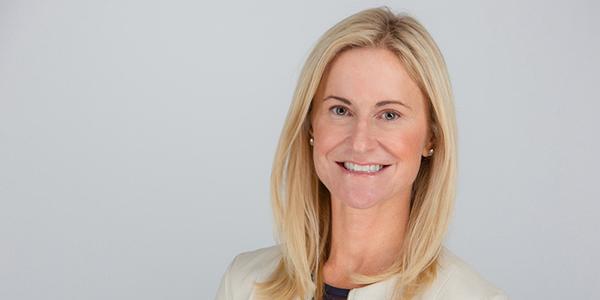
Lori Cashman PPS ’94 was at a turning point in her private equity career. She had backed off of her workload and travel schedule to focus on supporting one of her children through some medical issues. As her child’s issues subsided, she felt a call to action, a call to use her passion for investing in a more intentional and meaningful way.
When she was younger, Cashman had never thought of gender as a limiting factor. Throughout her years in the finance world, however, she began to focus on the stark reality of the female funding gap. Women control 70 to 80 percent of consumer spending, which amounts to approximately $20 trillion annually. They also start 40 percent of new businesses. And yet, each year, less than 3 percent of venture capital funding goes to women.
As Cashman considered the female funding gap, she found the statistics around consumer spending and data that proves that gender-diverse teams outperform their all-male counterparts on both top and bottom line metrics. She realized that there was a huge opportunity to leverage her network to help diverse founding teams scale successfully.

While considering this opportunity, she volunteered to launch and co-chair the Duke Women’s Forum in Boston, a national network of alumnae who gather and support each other through personal and professional development. Her business experience thrust her into a mentor position within the Women’s Forum, as alumnae began seeking her advice about getting equal access to funding, balancing family and career aspirations, and climbing the ladder in a male-dominated sector. She quickly realized the importance of this new role.
“At that point, I realized that I had never had a single female mentor in my career. I wondered if a female mentor would have been able to help me navigate that period of time and stress when I wanted to have more time to focus on my child’s medical concerns. I decided that I needed to ensure that the women coming up the path behind me had access to female mentorship and that they observed women deploying capital and actively investing as a norm.”
These insights led Cashman to found Victress Capital, along with her business partner, Suzanne Norris, an operator in the e-commerce space.
The idea of Victress is simple but powerful: if everyone sitting at the table is the same, how can you expect to understand the perspectives of a diverse consumer base? Victress works to answer that concern by investing in consumer companies with gender-diverse teams.
“We combine capital, mentorship and leverage our networks to fuel growth.”
Founding Victress Capital was how Cashman built a meaningful new chapter in her career, one that may ultimately create the change she wants to see.
Victress has current investments in firms like Daily Harvest, which uses “organic, thoughtfully sourced” produce to make nourishing food; Mented Cosmetics, cruelty free and vegan makeup for women of color; and Summersalt, a direct-to-consumer company that Victress believes will fill a need within the highly fragmented $22B women’s global swimwear and travel leisure market.
Cashman’s experiences at Duke pushed her to think critically, and she uses those skills every day at Victress, she said.
“I enjoy thinking about opportunities, where the white space is, what a good strategic approach to accessing that opportunity or leveraging the opportunity is and then executing. My PPS degree also pushed me to think about developing solutions to problems using limited resources. That mindset and approach has served me well, particularly investing in this space and growing a young venture firm.”
At Duke, she served as treasurer and then president of the Panhellenic Association, currently the “largest unified body of undergraduate women at Duke,” lobbying the university for more equal treatment for sororities, especially for access to meeting spaces. She also lauded faculty member Tony Brown and the important role his mentorship played in her life.
“I very much believe you pay that forward. A lot of this is about timing; you need to know how to network your way to the right person at the right time. I feel very, very fortunate for the success that I have had, and I feel an obligation, in particular, to young women to help them grow their networks.”
Cashman and her husband, Gillis Cashman ’97, have five children and live in the Boston area. She serves on the Sanford School Board of Visitors, which she sees as another way of assuring that women have the tools they need to do the work they want to do.
“While some progress has been made with female-led companies receiving more absolute dollars in funding, as a percent of all funding, the gap remains at 3%. We have more work to do to close that gap,” Cashman said.
“I feel as energized and passionate about being a Duke alum 25 years after graduating as I did two days after graduating. The Duke network has supported me in so many dimensions of my professional and personal life; I am committed to ensuring that I give back to Duke and Duke students and alums as much as I can in return.”
